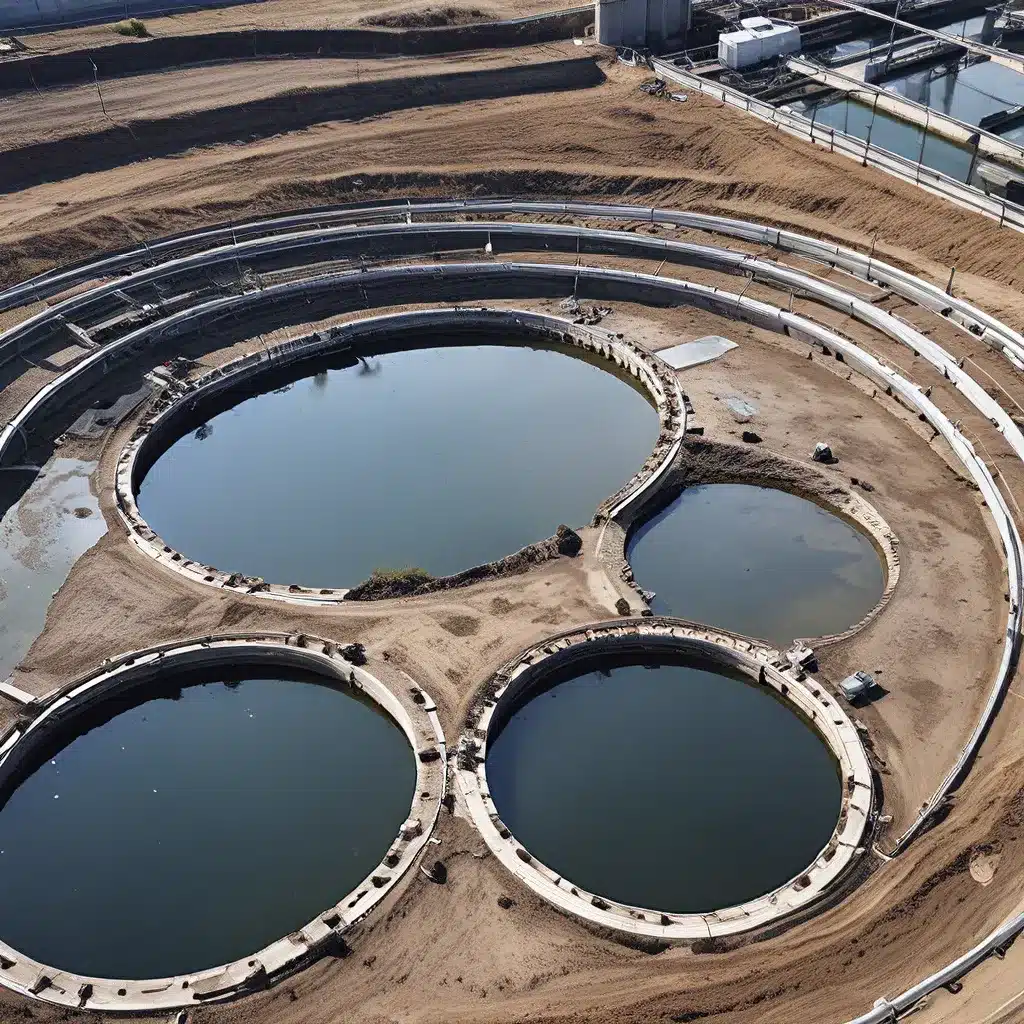
The Untapped Potential of Wastewater
Ah, wastewater – the unsung hero of our modern world. For too long, we’ve seen it as a burdensome byproduct, a necessary evil that we must simply dispose of. But what if I told you that we’ve been missing out on a treasure trove of opportunities, just waiting to be unlocked?
Inland Waters Inc., a leading provider of water treatment and environmental services, is on a mission to change the way we think about wastewater. By harnessing the power of the circular economy, we can transform this often-overlooked resource into a sustainable goldmine.
Embracing the Circular Economy
The circular economy is a paradigm shift that challenges the traditional linear “take-make-waste” model. Instead, it encourages us to extract maximum value from resources while minimizing waste and environmental harm. When applied to wastewater management, this principle urges us to consider not just disposal, but resource recovery and reuse.
Imagine if we could turn our wastewater into a valuable resource, rather than simply flushing it away. Well, the good news is, we can. By employing advanced treatment technologies, we can reclaim the water, harvest the energy, and recover the nutrients – all while reducing our environmental impact.
Unlocking the Treasure Trove
Let’s dive into the three key ways we can harness the power of the circular economy in wastewater treatment:
1. Water Reclamation
Traditional wastewater treatment systems often result in a significant loss of water that could otherwise be reclaimed. By implementing advanced purification processes, we can transform this wastewater into a high-quality resource suitable for non-potable uses like irrigation, industrial processes, and even groundwater replenishment. This not only conserves precious water resources but also reduces the strain on our limited freshwater supplies.
2. Energy Generation
Wastewater contains a hidden treasure – organic matter that can be converted into biogas through processes like anaerobic digestion. This biogas can then be harnessed to generate renewable energy, contributing to both energy security and reduced greenhouse gas emissions. It’s like turning our wastewater into fuel for the future!
3. Nutrient Harvesting
Wastewater is a treasure trove of essential nutrients, including nitrogen and phosphorus. By recovering these valuable components, we can create nutrient-rich fertilizers that can be used to replenish the soil, reducing the need for resource-intensive mining practices. It’s a win-win situation – we close the nutrient loop while also curbing our reliance on finite natural resources.
The Benefits Beyond Measure
Embracing circular wastewater management offers a multitude of advantages that extend far beyond the environmental realm. Let’s take a closer look:
Sustainability: By minimizing environmental impact and conserving water resources, we’re paving the way for a more sustainable future.
Energy Independence: Through renewable energy generation, we’re fostering self-reliance and reducing our dependence on fossil fuels.
Resource Efficiency: By transforming waste into valuable resources, we’re curbing the need for virgin materials and promoting a more circular economy.
Cost Savings: The revenue streams generated through energy generation and resource sales can help offset the costs of wastewater treatment, leading to significant long-term savings.
Exemplary Case Studies
Around the globe, visionary cities and industries are leading the charge in harnessing the power of the circular economy in wastewater management. Let’s take a look at a few inspiring examples:
Singapore’s NEWater
In the water-scarce city-state of Singapore, the NEWater initiative has been a shining example of successful water reclamation. By purifying wastewater to produce high-grade reclaimed water, NEWater ensures water security and reduces the burden on the island’s limited freshwater resources.
Hamburg Water Cycle
In Hamburg, Germany, the HAMBURG WATER Cycle project exemplifies the holistic recovery of energy, phosphorus, and other valuable components from wastewater. By embracing a circular approach, the city is reducing its environmental impact while creating new revenue streams.
Breweries and Biogas
Breweries, long known for their water-intensive operations, are now leading the charge in circular wastewater management. By harnessing the potential of their wastewater for biogas production, these industries are cutting operational costs while fostering sustainability.
A Call to Action
As we’ve seen, the potential of the circular economy in wastewater treatment is truly immense. But harnessing this power will require a collective effort. Here’s what we can do:
- Innovation and Collaboration: Foster cross-sector partnerships to develop and implement advanced technologies for resource recovery.
- Policy Advocacy: Advocate for policies that incentivize and prioritize circular wastewater management strategies.
- Awareness Propagation: Raise awareness about the benefits of embracing circular economy principles in wastewater management.
Together, we can transform wastewater from a challenge into a cornerstone of sustainability. By recycling and reusing this precious resource, we’re not only addressing pressing environmental concerns but also laying the foundation for a resilient and resource-efficient tomorrow.
So, are you ready to dive in and explore the treasure trove of opportunities that lies within our wastewater? The future is ours to shape, and the time to act is now.


